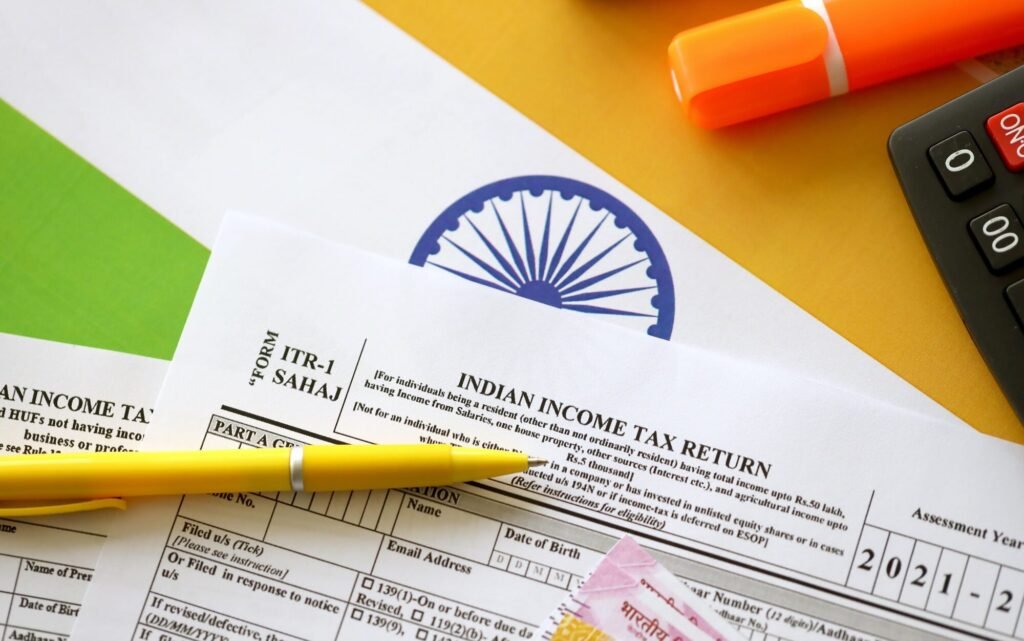Introduction:
In the pursuit of a healthier lifestyle, it’s not just your well-being that benefits; your financial health can also receive a boost, thanks to tax-saving opportunities on medical expenses in India. The Income Tax Act provides provisions that allow individuals to save on taxes while prioritizing their health. In this blog, we’ll explore the avenues available for tax savings in respect of medical expenses.

Medical Insurance Premiums:
Investing in a health insurance policy is a win-win situation. Not only does it provide financial security during medical emergencies, but the premiums paid for health insurance are also eligible for deductions under Section 80D of the Income Tax Act. Ensure you maximize this benefit by covering yourself, your family, and your parents.
Preventive Health Check-ups:
Prevention is better than cure, and the Income Tax Act acknowledges this by allowing deductions for expenses incurred on preventive health check-ups. Under Section 80D, individuals can claim a deduction for the amount spent on health check-ups, up to a specified limit.
Medical Expenses for Specified Diseases:
Section 80DDB offers deductions for expenses incurred on the treatment of specified diseases for oneself or dependents. Ensure that you keep proper documentation, including medical certificates and prescriptions, to claim deductions for these expenses.
Treatment of Disabilities:
If you or a dependent family member is differently-abled, you may be eligible for deductions under Section 80U. This provision considers expenses incurred for medical treatment, rehabilitation, and any amount paid for insurance against the disability.
Deductions for Senior Citizens:
Senior citizens enjoy additional benefits when it comes to tax-saving on medical expenses. The limit for deductions under Section 80D is higher for senior citizens, recognizing the potentially higher healthcare costs associated with aging.
Medical Reimbursement from Employer:
Many employers offer medical reimbursement as part of the salary package. This reimbursement, up to a certain limit, is exempt from income tax. Ensure that you provide proper bills and documentation to claim this benefit.
Special Allowance for Disabled Dependents:
If you have a dependent family member with a disability, you may be eligible for deductions under Section 80DD. This provision considers expenses incurred on the medical treatment, training, rehabilitation, and insurance of the disabled dependent.
Critical Illness Policies:
Critical illness policies cover specific life-threatening diseases, providing a lump sum amount upon diagnosis. Premiums paid for such policies are eligible for deductions under Section 80D. It’s a prudent choice for both financial security and tax savings.
Travel Expenses for Medical Treatment:
Under Section 80DDB, you can claim deductions for travel expenses incurred during the medical treatment of yourself or your dependents. This includes transportation and accommodation expenses, ensuring a comprehensive approach to tax-saving on healthcare.
Documentation and Compliance:
To avail the benefits of tax-saving on medical expenses, meticulous documentation is crucial. Keep records of all medical bills, prescriptions, insurance policies, and certificates, ensuring compliance with the provisions of the Income Tax Act.
Conclusion:
Prioritizing health is an investment in your well-being, and the Indian tax system recognizes and rewards this commitment. By leveraging the provisions available for tax-saving on medical expenses, individuals can not only secure their financial future but also foster a culture of proactive health management. As always, it is advisable to consult with a tax advisor for personalized advice based on your specific circumstances



